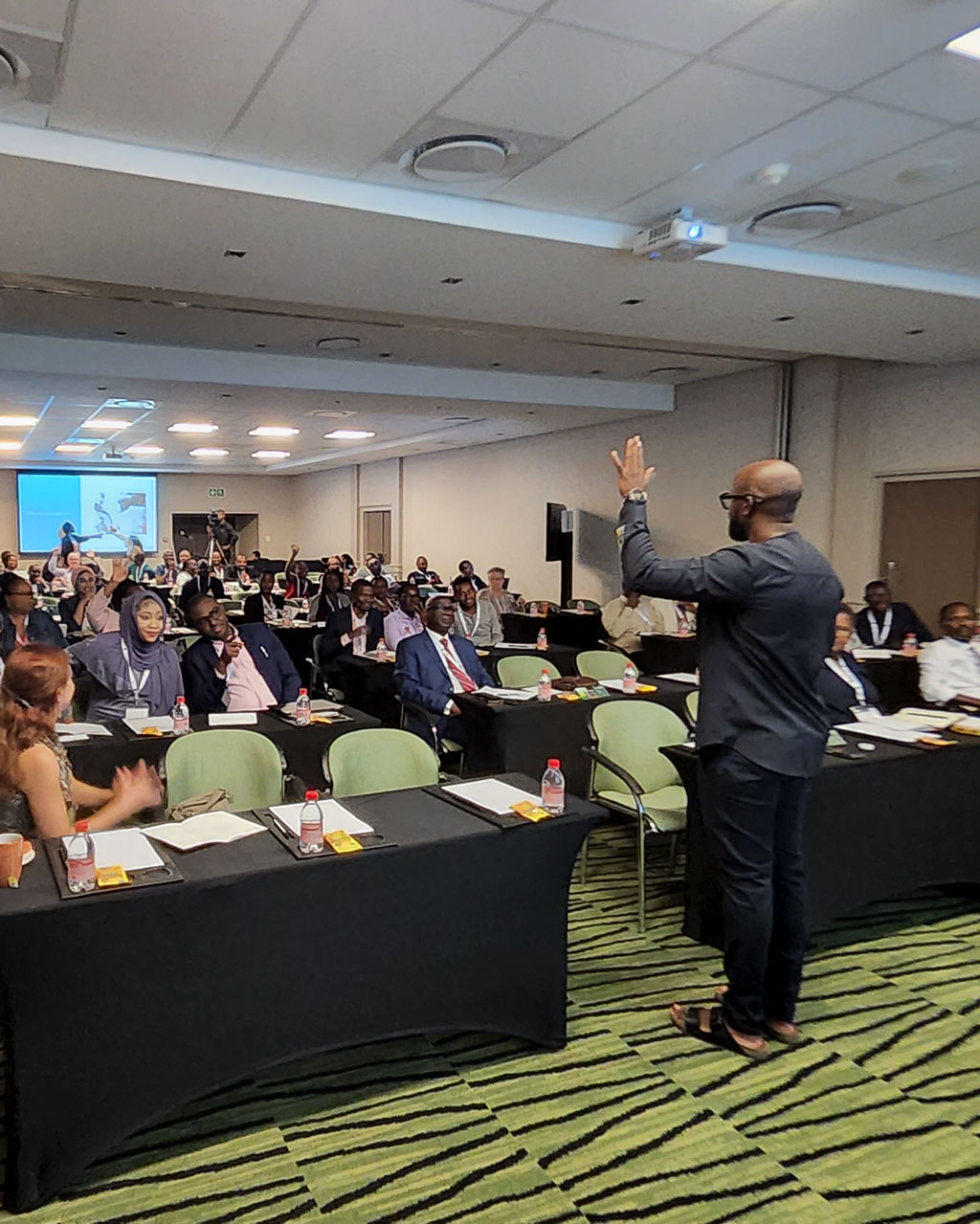Train-the-Trainer

Master the Art of
Adaptive Leadership Training
The need for effective leadership facilitation is increasing as our global community and organizational challenges get more complex, less certain and simply harder to manage. “Facilitation” in these contexts often extends beyond simple training facilitation to holding—and even leading—competing stakeholders through a process of creative disequilibrium to undergo a deep experiential learning process.
For the facilitator, as for a leadership practitioner, a guiding question is therefore how do I prepare people to tolerate the pressures, heat and ambiguity that develops as we work toward resolving tough and seemingly intractable (adaptive) challenges? Facilitators take part in a well-tested and refined onsite and offsite development process that includes a range of experiential, didactic and results-oriented activities based on established adult-learning principles. Specific consideration will be given to differing levels of experience and perspectives.
Course Requirements – Introduction to Adaptive Leadership helps to ground you in the basics of the framework. We encourage you to register for the Introduction course before you attempt the Train the Trainer program.
Click here for more information on our Introduction Course
What makes our Program Unique?
Case in Point Facilitation

Practice experiential learning using the CIP (Case in point) facilitation method developed at Harvard Kennedy School to master the X-factor of the adaptive pedagogy.
Access to Proprietary Material

Our Adaptive Leadership (TM) materials evolved from years of practical experience. Includes workbooks, slide decks, guides and other resources.
Adaptive Balcony Coaching

Master the practice of coaching individuals and groups by asking the right questions and empowering others around you to step into their own leadership moments.
What is Adaptive Leadership Facilitation?
Adaptive Leadership facilitation builds facilitator capacity by shifting the training “classroom” to become a space to practice leadership rather than to simply study it. The cornerstone of Adaptive Leadership facilitation is a belief that, to facilitate well, the facilitator needs to internalize the very capacities that they seek to create in the individuals and teams they’re facilitating. This includes managing self and role, understanding their relationship to authority, surfacing factions, managing frustration and discomfort in the face of intractable challenges, navigating disappointment and orchestrating productive conflict. To do that, facilitators must develop a keen eye for seeing the system as it reveals itself, generating multiple interpretations and then crafting activities and interventions to help people engage purposefully.
Specific, practical skills the facilitator can expect to learn include:
- Reading dynamic situations and designing interventions in the moment
Making hidden issues, assumptions and interpretations transparent and testable - Depersonalizing conflict
- Directing attention to systemic, rather than personal, interpretations
- Resisting the urge to provide premature closure to conversations
- Holding steady when participants express discomfort or hostility
- Making conscious choices about which lines of inquiry to pursue and which to let pass
- Refashioning participants’ expectations that they can rely on the facilitator for answers
Format
The 5-day Adaptive Leadership Train-the-Trainer program takes place over 3 months. It consists of a field and forum design. Participants receive a grounding in the principles and practices of Adaptive Facilitation on November 14-15. They then undertake 3 months of largely self-guided practice, culminating in a 3-day ‘teach-in’ in early 2025. During the ‘teach-in’, participants develop skills to design and expertly facilitate one or more of the following:
- Standard Adaptive Leadership session (2-day)
- Shorter form trainings or adaptive interventions (1-hr to 1-day)
- Longitudinal action-learning programs (6-18 months)
- Peer-based self-guided activities
- Other formats tailored to the needs of your organization or clients.
Certification
Upon successful completion of the program, facilitators receive ACA certification in Adaptive Leadership (TM) along with access to proprietary materials and trainer assets.
Dates/Times [US Eastern Time]
Introduction to Adaptive Facilitation (2 days)
- November 14-15, 2024 | 9:00am – 12:00pm ; 2:00pm – 5:00pm
Certification in Adaptive Leadership (3 days)
- February 7, 10 and 11, 2025 | 9:00am – 12:00pm; 2:00pm – 5:00pm
Fees
Corporate $12,000, Nonprofit/Govt $7,500 ; limited scholarships available
Inquire
Seats for this workshop are limited
